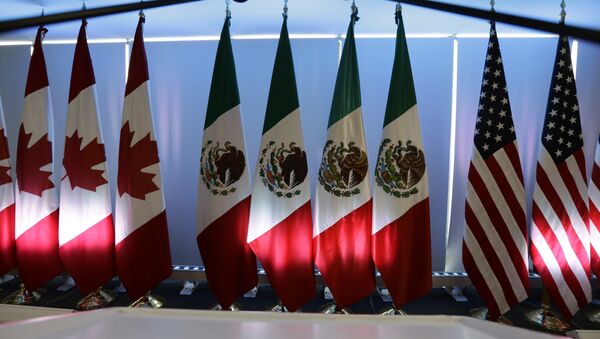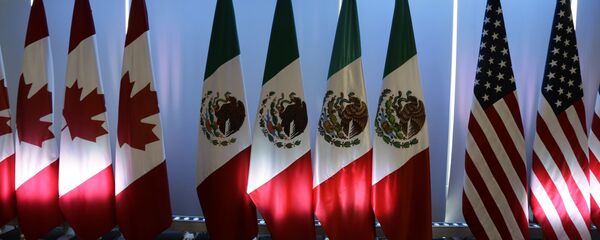Sputnik: Does the newly released USMCA have any real positive differences compared to the old NAFTA?
Doug Campbell: This is a lot like NAFTA. I guess Canada made some additional small concessions on things like milk product, but this looks like essentially the same agreement. It's closer to NAFTA plus the TPP, both of which Trump opposed on the campaign trail. Trump can at least say he bargained for a slightly better deal, but very few Americans will be able to feel a difference.
Doug Campbell: I'm very doubtful this will bring back a significant number of jobs to US manufacturing. In fact, the original NAFTA was unlikely to have cost the US more than 100,000 manufacturing jobs — out of 18 million in the 1990s. Bigger causes of the decline were China, real exchange rates, and automation. The tariffs on China will probably work to bring back some American manufacturing jobs, but most that were lost will not come back. They will more likely either stay in China or shift to other low-wage countries or parts of Asia, who will then process China's exports to evade US tariffs.
Sputnik: Will it be possible to use this positive example and renegotiate other trade deals, such as the TPP or a US trade agreement with China?
Doug Campbell: Yes, I think China probably views this as hopeful. It can probably give in on a small handful of things — forced technology transfers, Intellectual Property theft, foreign ownership limitations, and increased market access in some sectors — and get rid of the tariffs which do appear to have caused real damage to the Chinese stock market if not the economy as well.
Doug Campbell: Slim to none. For the average person, if they feel an effect it's really a placebo.
Sputnik: Can the world stock markets expect another historic rally after the American administration’s announcement of this document?
Doug Campbell: The US stock market rallied on the news, in fact. By most measures, the US stock market does already appear to be richly valued at present by historical measures, and so I would expect lower risk-adjusted returns in the future.
The views expressed in this article are those of the speaker, and do not necessarily reflect those of Sputnik.


